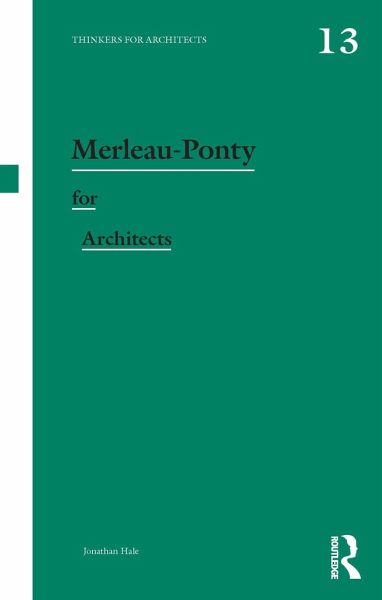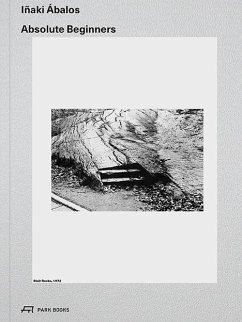
Merleau-Ponty for Architects
Versandkostenfrei!
Versandfertig in 1-2 Wochen
43,99 €
inkl. MwSt.
Weitere Ausgaben:

PAYBACK Punkte
22 °P sammeln!
The philosophy of Maurice Merleau-Ponty (1908-1961) has influenced the design work of architects as diverse as Steven Holl and Peter Zumthor, as well as informing renowned schools of architectural theory, notably those around Dalibor Vesely at Cambridge, Kenneth Frampton, David Leatherbarrow and Alberto Pérez-Gómez in North America and Juhani Pallasmaa in Finland. Merleau-Ponty suggested that the value of people's experience of the world gained through their immediate bodily engagement with it remains greater than the value of understanding gleaned through abstract mathematical, scientific o...
The philosophy of Maurice Merleau-Ponty (1908-1961) has influenced the design work of architects as diverse as Steven Holl and Peter Zumthor, as well as informing renowned schools of architectural theory, notably those around Dalibor Vesely at Cambridge, Kenneth Frampton, David Leatherbarrow and Alberto Pérez-Gómez in North America and Juhani Pallasmaa in Finland. Merleau-Ponty suggested that the value of people's experience of the world gained through their immediate bodily engagement with it remains greater than the value of understanding gleaned through abstract mathematical, scientific or technological systems. This book summarizes what Merleau-Ponty's philosophy has to offer specifically for architects. It locates architectural thinking in the context of his work, placing it in relation to themes such as space, movement, materiality and creativity, introduces key texts, helps decode difficult terms and provides quick reference for further reading.














